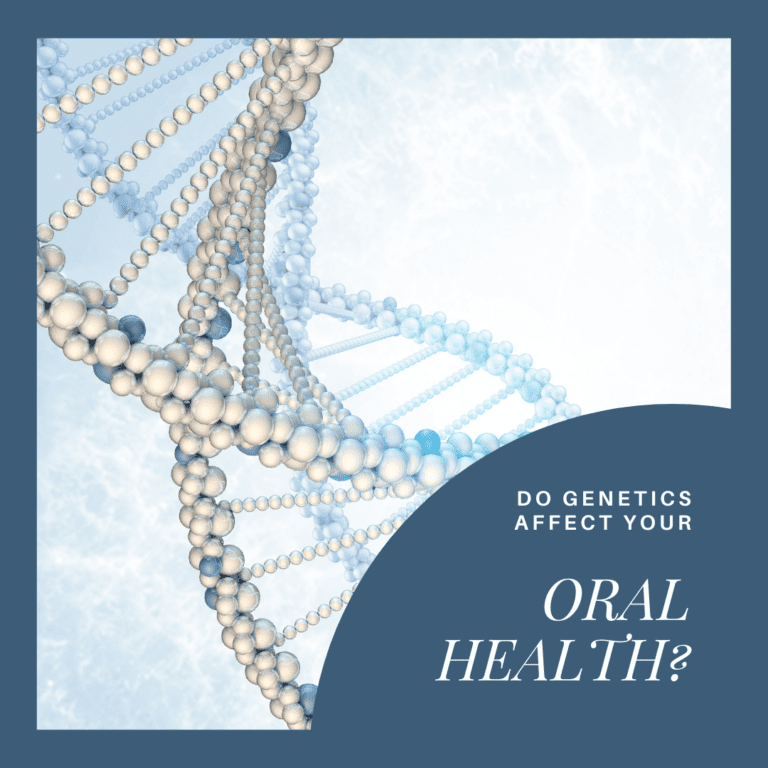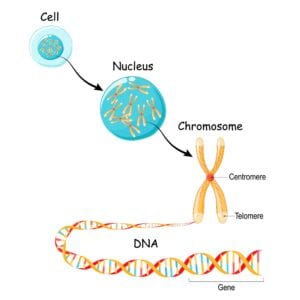Do Genetics Affect Your Oral Health?

Our genes contain the blueprint that our cells use to build and maintain our body. Thousands of genes, given to us by our biological parents, are contained within each chromosome. Every cell in our body contains 23 pairs of chromosomes, with each pair being made up of one chromosome from each parent. Although most people associate genetics with things like hair and eye color, our genes can also have an effect on our oral health.
You see, each chromosome contains thousands of genes. Some of these genes may be active, while others may be dormant. Gene regulation is the process that causes certain genes to be appropriately activated. For example, the changes associated with aging are a result of gene regulation activating and deactivating certain genes. In some cases, certain genes can also interact with environmental factors that can result in disease. Simply stated, this means that you could be at a higher risk of developing certain conditions, such as oral health problems.
While oral health problems are generally not the result of a single gene defect, here are some oral health conditions that you could be genetically predisposed to:

Gum Disease
While gum disease is generally the result of excess plaque buildup along the gum line, studies indicate that as many as 30% of Americans may have a genetic predisposition to developing gum disease. This means that if your parents have had problems with red, swollen, or tender gums, then you may also develop the same problem. Luckily, gum disease can be prevented or minimized with good oral hygiene
Tooth Decay
Recent research has also identified a possible genetic link to tooth decay. Specifically, it has been found that specific variations of the beta-defensin 1 gene (DEFB1) can increase the risk of tooth decay. Like gum disease, good oral hygiene is one effective way to prevent tooth decay. However, you should also mention a family history of tooth decay to your dentist.
Crooked Teeth
Inheriting crooked teeth is another dental issue that is related to genetics. For many people, this one makes sense since the facial structure of an individual is directly related to the facial structure of their biological parents. Oftentimes, it is not necessarily crooked teeth that are inherited, but a specific jaw size and shape. When the jaw is too small, it can cause overcrowding, which results in teeth that overlap and appear crooked. Malocclusion can also cause problems with tooth alignment.
Oral Cancer
There is a possibility that people with certain genetic markers may be at an increased risk of developing oral cancer. However, the vast majority of oral cancer cases are caused by environmental factors such as smoking, excessive alcohol intake, poor diet, and a lack of oral hygiene.
Cleft Lip or Palate
When the sides of the lip don’t fuse together this is known as a cleft lip. When the top of the mouth doesn’t fuse together properly, this is known as cleft palate. Both have been associated with a possible genetic link. It has been found that Asian, Latino, and Native American babies are more likely to be born with a cleft lip and/or palate. Parents with a cleft lip or palate are also more likely to pass this on to their children.






Recent Comments